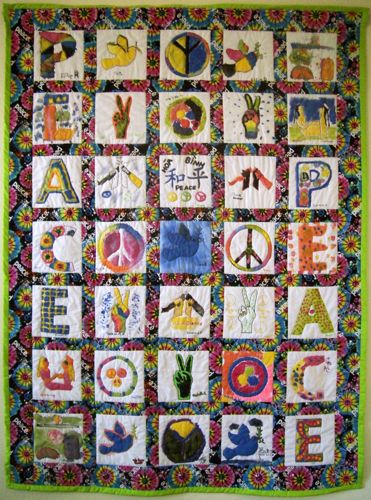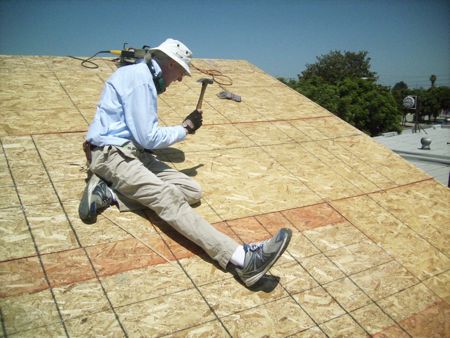Although it seems unlikely that the United States will reinstate compulsory military service any time soon, there are people who are so opposed to any form of military service that they may want to establish themselves as a conscientious objectors for personal and/or moral reasons rather than for practical reasons. Then too, the political climate in the United States could change very quickly, all young men are required by law to register with Selective Service at age 18, and it is not unreasonable to want to establish conscientious objector (CO) status now just in case you need it later.
When I had to register for the draft upon turning 18, the Central Committee for Conscientious Objectors (CCCO) provided counseling and resources that helped me, but the CCCO died in 2010. And the big concern for most organizations in the present political climate is supporting people already in the military who discover that they are COs.
However, I have found some good online resources for non-military COs. Most important is the Center on Conscience and War (CCW) Web page titled “Advice to Youth Facing Selective Service Registration” which offers three main suggestions:
Print in legible black ink on the face of all Forms sent to Selective Service (not on the edges): I am a conscientious objector.
Make a photocopy all forms for your own records before you submit it to the postal clerk for date stamp and initials. Send all mail return-receipt requested.
Prepare a statement of your beliefs. Get it on file with your church or a reputable peace organization such as CCW. Such a statement could be helpful in getting the government to recognize your CO beliefs.
You can read the full article here. You can find a PDF of “Basic Draft and Registration Information,” a more comprehensive article, here.
What about Unitarian Universalists and conscientious objection? The Unitarian Universalist Association (UUA) offers a brochure titled “Conscientious Objectors and the Draft,” available online here. Unfortunately, this brochure is somewhat dated, but it’s still worth reading. According to this brochure, the UUA maintains a registry of conscientious objectors; with the demise of the CCCO registry, this is good news for UU COs.
All this makes me think back to how I documented my own conscientious objection to war as a Unitarian Universalist youth. The first thing I did was talk with Rev. Pat Green, the associate minister at my Unitarian Universalist church, about my religious objections to war and the military; he helped me sharpen my arguments in favor of pacifism, and find a religious basis for them. Pat also helped me to understand that although Unitarian Universalism does not have a specific peace witness (unlike, e.g., Quakerism), our religion nevertheless calls on us to follow our conscience in the face of difficult moral and ethical decisions. Thus I learned that as a Unitarian Universalist I could remain firmly opposed to participation in war on religious grounds, and other Unitarian Universalists could remain firmly committed to a career in the military on religious grounds. And Pat also pointed out that because of this, it was much harder for a Unitarian Universalist to convince a draft board that he was a CO than a Quaker (and yes, I do mean to use the word “he” here, since women have yet to be subject to compulsory military service in the United States).
I also registered with the CCCO — if I were doing this today, I would register with the UUA, my local congregation, and the Center on Conscience and War (CCW). I have vague memories of writing out a statement of my pacifism, but I don’t remember what I did with this. I got involved in the peace movement, specifically in campaigns to reduce the U.S. nuclear arsenal, attending demonstrations in Washington, etc. Before I turned 18, I found a qualified counselor who could give me advice about registering with Selective Service — the man I saw was trained by the CCCO, but as I understand it the CCW still trains such counselors. I also knew my Unitarian Universalist church would back me up if I ever needed to establish a claim, and I suppose that’s one thing that kept me involved in Unitarian Universalism.
If I were to give advice to a Unitarian Universalist youth today on how to establish CO status (and one recently asked me for just such advice), I might refer them to the Web page “How To Compile a CO Claim,” which suggests the following:
- State that you are a CO when you register with Selective Service
- Write a statement of your CO beliefs
- Get three people who know you well to write a letter supporting your CO claim
- Get active in peace work, and document your activity
- Document other ways in which your pacifism has affected the way you live your life (at the very least, give money to CCW!)
- Collect all these documents, and get them notarized
- File copies of these documents with the UUA, your local UU congregation, and find out if the CCW will keep them on fiel as well
- Keep the originals in a safe place
If you have any other suggestions or resources for UU youth who want to establish their conscientious objection to war, I’d love to hear them — leave them in the comments below.


